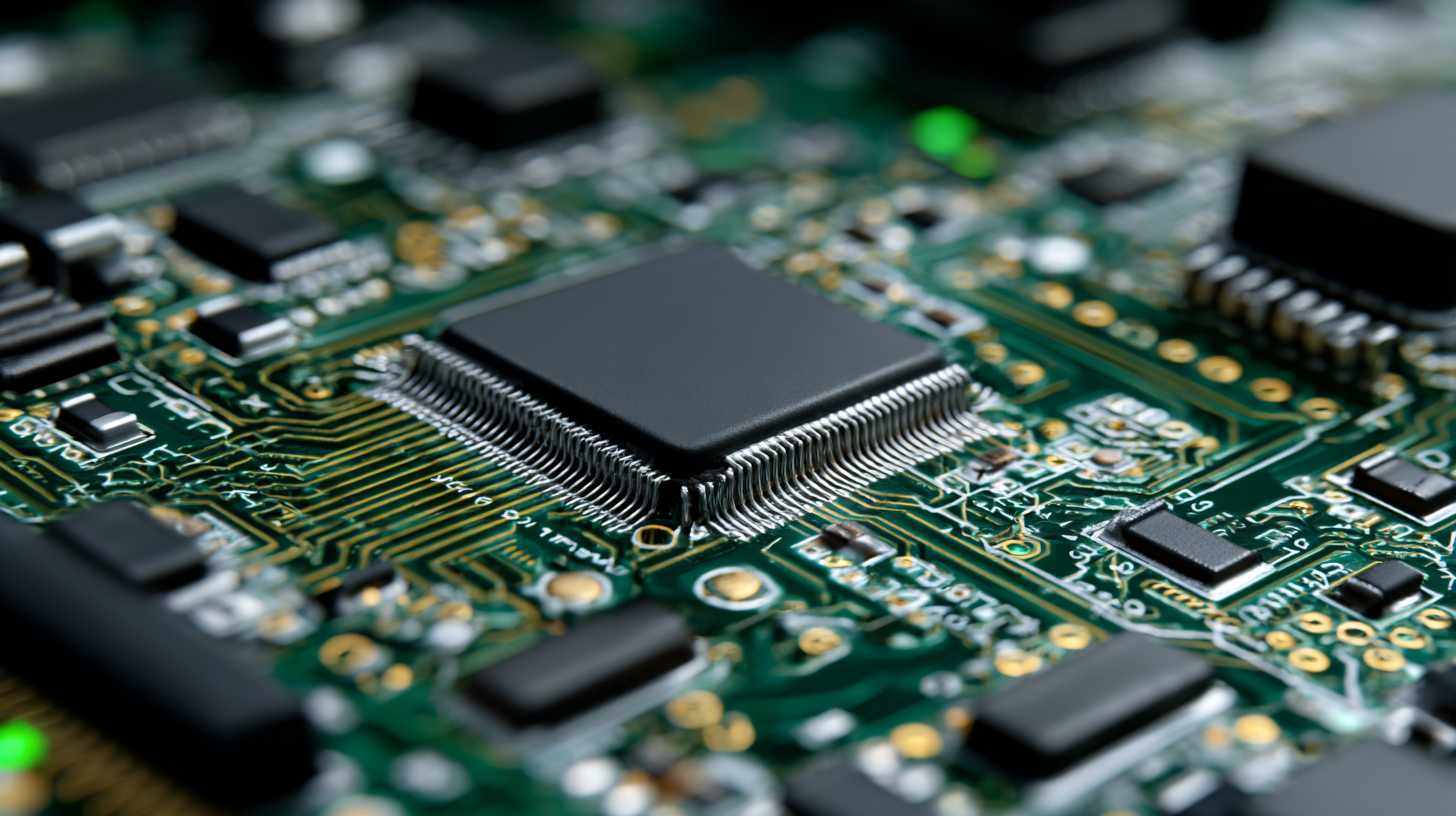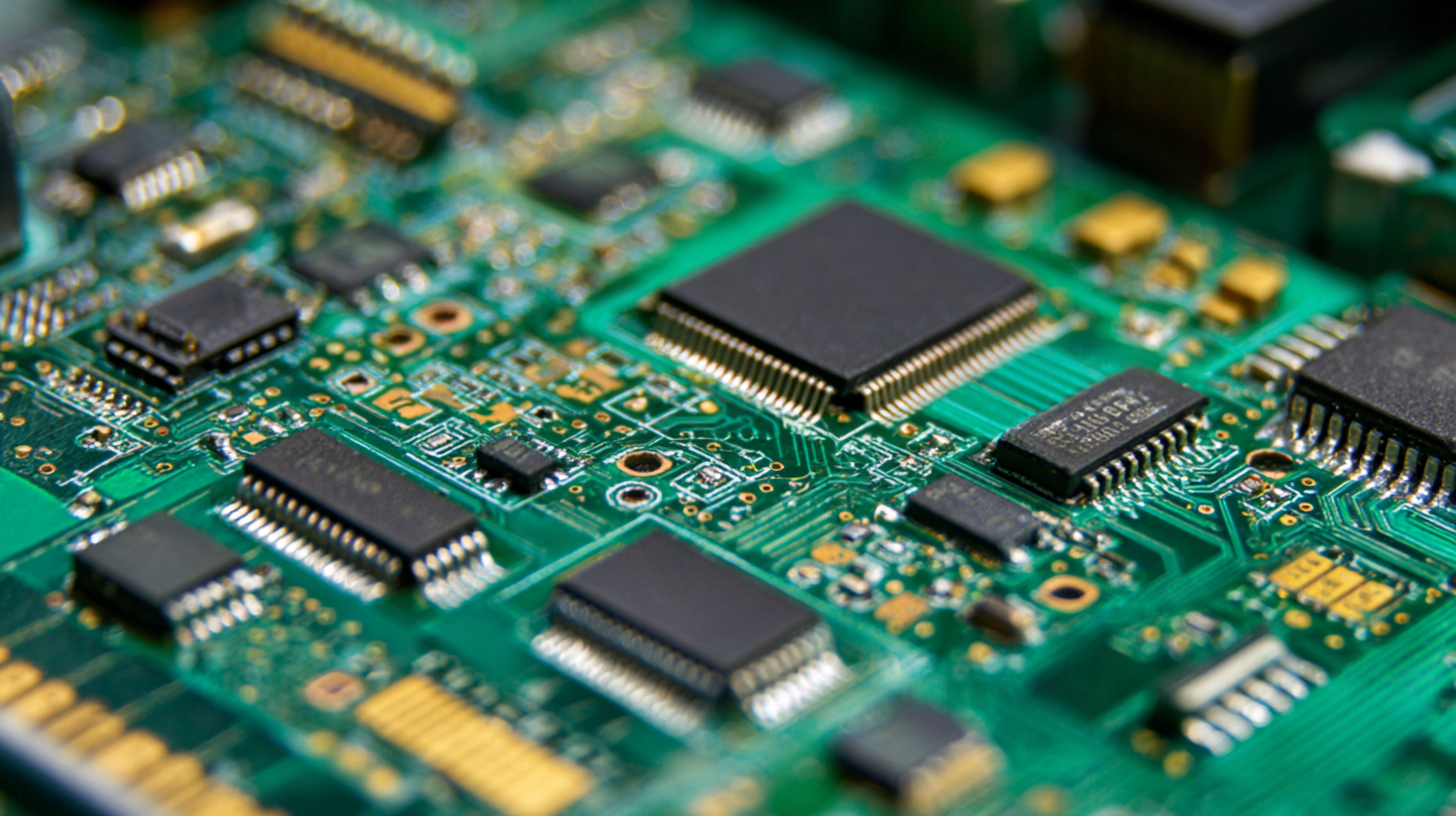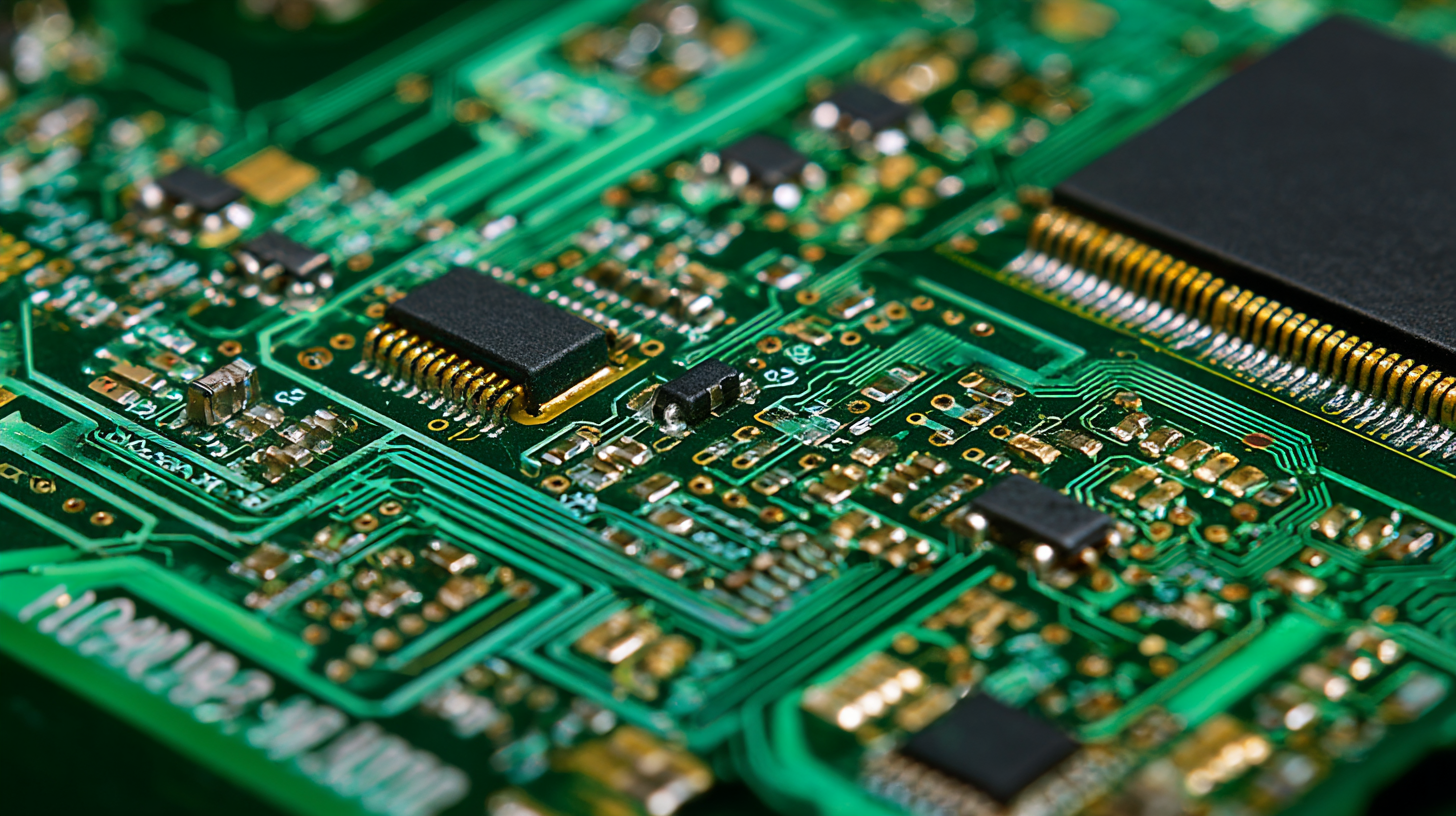- PCB Assembly
- PCB Fab
- Resources
- Company
- Blog
Understanding Global Industry Standards for Best PCB Printed Circuit Boards in Modern Manufacturing
In the fast-evolving landscape of modern manufacturing, the significance of PCB Printed Circuit Boards cannot be overstated. As the backbone of electronic devices, PCBs are integral to a vast array of applications, from consumer electronics to automotive advancements. According to a report by MarketsandMarkets, the global PCB market size was valued at USD 60 billion in 2020 and is projected to reach USD 83 billion by 2026, growing at a CAGR of 6.2%. This growth signifies the increasing demand for high-quality and reliable PCBs, particularly as industries strive to adhere to stringent global standards. In China, advancements in manufacturing technologies and certifications underscore a commitment to producing world-class PCBs that not only spotlight the nation’s industrial prowess but also position it as a major exporter in the global market. As we delve deeper into this topic, we will explore the critical role that industry standards play in ensuring quality and innovation in PCB fabrication.

Evaluating Key Factors When Selecting a PCB Manufacturer
When selecting a PCB manufacturer, several key factors come into play that can significantly influence the overall quality and performance of the printed circuit boards. First and foremost, it’s essential to assess the manufacturer’s experience and reputation within the industry. A well-established company with a proven track record is likely to adhere to global industry standards, ensuring that the PCBs produced are reliable and compliant with necessary regulations. Furthermore, manufacturers that invest in advanced technology and equipment can provide better precision and efficiency, resulting in higher quality boards that meet specific design requirements.
Additionally, considering the manufacturer’s certifications and adherence to international standards such as IPC and ISO can offer further assurance of their quality and reliability. It’s also vital to evaluate their customer service and support structure; a responsive and knowledgeable team can assist with any issues that arise throughout the production process, fostering a collaborative environment. Lastly, pricing should be balanced with quality; while cost-effectiveness is important, opting for the cheapest option may compromise the integrity of the product. Ensuring that the selected PCB manufacturer aligns with these key factors can lead to successful outcomes in modern manufacturing.
Understanding Global Industry Standards for Best PCB Printed Circuit Boards in Modern Manufacturing - Evaluating Key Factors When Selecting a PCB Manufacturer
| Criteria | Importance Level (1-10) | Typical Range | Notes |
|---|---|---|---|
| Manufacturing Technology | 9 | Multi-layer, HDI | Latest technology increases precision and performance. |
| Quality Certifications | 10 | ISO 9001, IPC Class 2/3 | Ensures adherence to quality standards. |
| Lead Time | 8 | 2-6 weeks | Influences project timelines significantly. |
| Cost Competitiveness | 7 | $0.01 - $0.20 per square inch | Balance between cost and quality is essential. |
| Customer Support | 8 | 24/7 availability preferred | Critical for resolving issues promptly. |
| Environmental Compliance | 9 | RoHS, WEEE | Necessity for sustainability practices. |
Understanding Global Industry Standards in PCB Production
Understanding global industry standards in PCB production is essential for manufacturers seeking to ensure quality and reliability in their products. According to a report by IPC (Institute of Printed Circuits), over 70% of electronic device failures are attributed to PCB defects, underscoring the importance of adhering to standards such as IPC-A-600 and IPC-610. These guidelines are critical in defining acceptable quality levels for bare boards and assembled PCBs, guiding manufacturers through the complexities of design and production while reducing the risk of costly recalls.
Tip: It's crucial for manufacturers to regularly train their workforce on these standards and invest in quality management systems that are certified to ISO 9001. This proactive approach not only improves product quality but also helps in achieving compliance with international regulations.
Additionally, understanding standards like RoHS (Restriction of Hazardous Substances) and REACH (Registration, Evaluation, Authorization, and Restriction of Chemicals) is vital, especially as global regulatory requirements grow stricter. Compliance ensures that PCBs are manufactured without harmful substances, protecting both the environment and consumer safety.
Tip: Conducting regular audits and assessments of suppliers can ensure that they meet these standards, ultimately enhancing the reliability of the supply chain and the end product's performance.
Comparative Analysis of Leading PCB Manufacturers
The printed circuit board (PCB) manufacturing industry is rapidly evolving, with significant growth projected in the coming years. According to recent market analysis, the PCB market size is anticipated to reach over $80 billion by 2025, propelled by advancements in technology and increased demand for electronic devices. The market is primarily segmented into rigid boards, which include single-layer, double-layer, and multilayer configurations. The multilayer boards are particularly gaining traction due to their efficiency in powering advanced electronic applications.
When evaluating leading PCB manufacturers, several key factors come into play, including production capabilities, quality control measures, and environmental impact. A comparative analysis of these companies highlights their approaches toward sustainability, especially in the context of alternative materials for PCB production. For instance, the exploration of eco-friendly materials can significantly reduce the environmental footprint of four-layer PCBs, addressing growing concerns about electronic waste.
**Tips:** When selecting a PCB manufacturer, prioritize those that demonstrate a commitment to sustainable practices. Additionally, consider manufacturers who offer a range of product types, as this flexibility can cater to various project needs. Lastly, always review their quality assurance processes to ensure that the final product meets industry standards.
Comparative Analysis of PCB Manufacturing Quality Metrics
Benefits of Adhering to Industry Standards in PCB Development
Adhering to industry standards in PCB development is crucial for ensuring product reliability and performance. By following established guidelines, manufacturers can significantly reduce the risks of defects and failures in their printed circuit boards. This not only enhances the overall quality of the final product but also minimizes the chances of costly recalls and repairs, which can tarnish a company's reputation and impact its bottom line.

Moreover, compliance with global industry standards facilitates better communication and collaboration among stakeholders. It provides a common framework that suppliers, manufacturers, and customers can rely on, fostering trust and efficiency throughout the production process. When all parties adhere to the same standards, it streamlines procurement and reduces misunderstandings, leading to smoother operations and quicker time-to-market. Additionally, consistent practices in PCB development help manufacturers stay competitive, as they can easily adapt to changes in technology and market demands while maintaining high quality.
Emerging Trends in PCB Manufacturing and Their Impact on Quality
Emerging trends in PCB manufacturing are significantly reshaping the landscape of modern electronics. With advancements in technology, the industry is witnessing a shift towards more efficient production processes, including automation and the use of AI-driven design tools. These innovations not only expedite the PCB design and manufacturing process but also enhance the accuracy and reliability of the end products. The increasing demand for miniaturization and high-performance electronics means that manufacturers are focusing on developing smaller, more complex PCBs that meet stringent quality standards.
Moreover, sustainability has become a pivotal trend in PCB manufacturing. Companies are adopting green manufacturing practices and materials to reduce their environmental impact. This includes the use of eco-friendly substrates and processes that minimize waste and energy consumption. As consumers and organizations emphasize the importance of sustainability, PCB manufacturers are compelled to align their operations with these values, ensuring that quality and environmental responsibility go hand in hand. The integration of these emerging trends not only impacts manufacturing quality but also sets the stage for future innovations in the electronics industry.

Phone
 WhatsApp
WhatsAppEmail
Offer Electronics Manufacturing All-in-One
PCBONLINE® is a registered trademark or service mark of pcb online limited or its affiliates.
Copyright © 2001-2024 Pcb Online Limited. All rights reserved